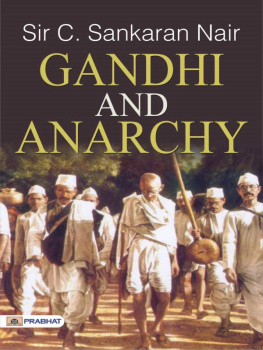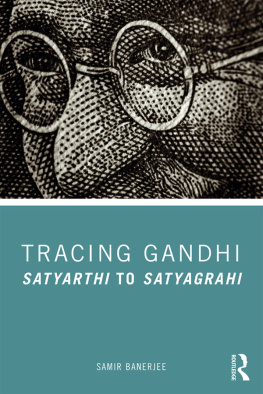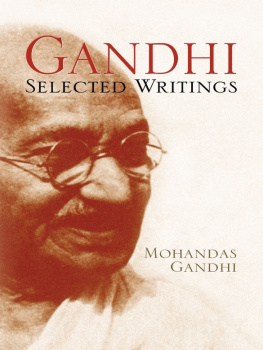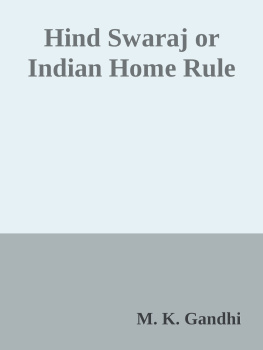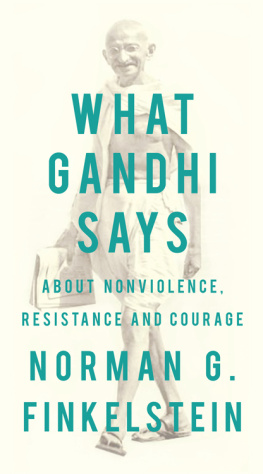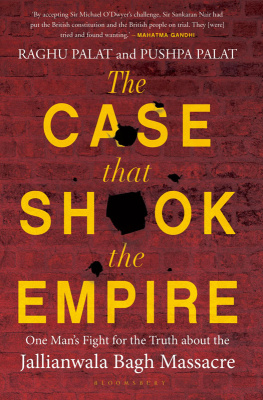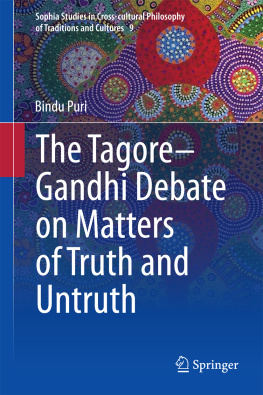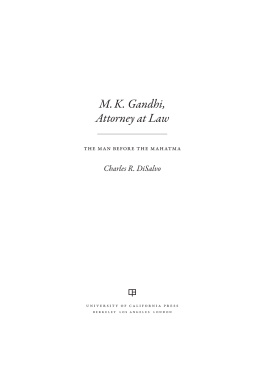Transcriber's Note.
Variations in the spelling of words associated with the Muslim religion have been retained. Other apparent typographical errors have been corrected.
The tables in Appendix XXII were originally printed sideways. In order to fit into the format of this edition the first three columns of each table (that list the province, date, and place of each riot or incident) have been combined.
GANDHI AND ANARCHY
By
SIR C. SANKARAN NAIR
Published by
TAGORE & CO., MADRAS
First Published March 1922
Second Edition July 1922
All Rights Reserved
Right of Translation not Reserved
PREFACE
The struggle for Indian Home Rule which was started with the inauguration of the Indian National Congress has many difficulties to encounter, has strong and powerful opponents and has received many checks. But its strongest opponent is Mr. Gandhi and perhaps the most severe check it has received is the adoption by the National Congress at his instance in Calcutta and Nagpur of the so-called-Non-violent Non-co-operation. Non-co-operation as advocated by Mr. Gandhi may be a weapon to be used when constitutional methods have failed to achieve our purpose. Non-violence and passive suffering will lead to bloodshed or be unfruitful of any satisfactory results. Moreover, nothing shows the lack of statesmanship more than practically basing the claim for Swaraj upon the Punjab and the Khilafat grievances. As representing Asia against Europe, the fair against the white race, the Hindus regarded the Turkish Empire with sympathy and were disposed to support the Mahomadens as Asiatic representatives. But when by Gandhi and Khilafatist that claim was abandoned; when the Arabs perhaps the noblest of the Mahomadan races who fought as our allies and helped us to defeat Turkey were sought to be brought under Turkish dominion, when other Asiatic races freed by the war were asked to accept Turkish sovereignty on grounds based on the Mahomaden religion which had already produced such baneful result in India, the situation became entirely different. It was rightly realised by many, and the sequel has proved that they were right, that the path of the progress of the Gandhi movement fused with the Khilafat element will be bloody. The claim for Indian Home Rule rests upon very different grounds. The Hindus have nothing to do with the Khilafat agitation. The Mahomadans themselves are not agreed as to the claims advanced on behalf of the Calif. It is even questionable, to put it mildly, whether that claim has the support of the majority of the Mahomadans. While the claim itself rested on such slender grounds, the means first adopted to enforce the claim were grotesque. The methods advocated by Mr. Gandhi and the Congress are directed against Western civilization; against the class which fought for and won the reforms; and the Montague reforms scheme of constitutional progress. They have failed miserably and as was natural more violent methods leading to direct conflict with the forces of Government have been advocated which would in all probability have been carried out but for the arrest and imprisonment of Mr. Gandhi. He belongs to a class of thought which has attracted some of the noblest minds in this world, but in applying his the gospel of life to politics, he has shown himself a babe and his interference has been generally mischievous. In South Africa he is responsible for creating a situation which makes a peaceful and satisfactory solution practically impossible. His factious policy in India stands in the way of further reforms. The opposition to Gandhi was however not strenuous. The so-called Moderates only whispered their protests against his policy so as not to be heard beyond a few feet. They are loud however, in their denunciation of Government action to check the illegal activities of Mr. Gandhi and his followers. It can hardly be doubted that their cautious attitude has contributed to the growth of the Gandhi movement. But the inexplicable conduct of a certainI won't say classbody of gentlemen has still more contributed to that result.
There is scarcely any item in the Gandhi programme which is not a complete violation of everything preached by the foremost sons of India till 1919; which has not been strongly even vehemently denounced by those old respected members of the Congress who now follow Mr. Gandhi, Pandit Malaviya, Messrs. Vijayaragavachari, Lajapat Rai, Natarajam, S. Kasturiranga Iyengar, the Editor of the 'Hindu.' Mr. Gandhi's emotional outbursts, fastings, penances, Sanyasi waist cloth, may carry away the emotional masses, women and students. But whether this wave of emotionalism submerged the men abovenamed I would not care to guess. No one of course has any right to find fault with his genuine followers like Mr. Prakasam, Editor, 'Swaraj' whose motives, however much we might differ from his politics, no one will question. He is one of those genuine patriots who believes in the efficacy of Mr. Gandhi's methods to obtain Home Rule. By far the great majority however, follow him for other reasons.
The severe simplicity and austerity of Mr. Gandhi's life combined with his appeal to the principle of 'Ahimsa' non-injury inherited from Buddists and now ingrained in Hindu life, has secured him the support of the Hindu masses and particularly vegetarians. His support of the caste system has won over the higher classes and the reactionary elements of Hindu society to his side. The caste system is entirely opposed to the 'Ahimsa' (Non-injury) principle. The former has dedicated one of the main castes to death. Its function is to kill and be killed. It is also the function of some of the sub-castes of the lowest caste or class to slaughter animals. His indiscriminating support of the extreme Khilafat demands has ensured the Mahomedan support. Islam is more opposed than the caste system to "Ahimsa." The trouble with the Hindus over the slaughter of cows is due to this difficulty. Some politicians who naturally desire to use him and the influence he has acquired for putting pressure on the Government to concede further reform, also have joined him. But I am satisfied he is using them all to further his own ends. An attempt in which he is bound to fail. His success i.e. the success of the reactionary forces in India to obtain what they call Dominion status or Home Rule, but, which really means their rule, will not only lead to bloodshed and anarchy and the dismemberment of the Empire; but to the triumph of a reactionary policy, social, moral and economic, against which the democratic policy of the recent reforms and the Legislative Councils is an emphatic protest. I have attempted in the following pages to give my reasons for these conclusions.
Far more important than my narrative are the extracts published in the appendix. They consist of speeches made by the Viceroy, and members of Government in the Legislative Councils. I have on account of considerations of space omitted speeches in many provinces. I have not given any speech in full for the same reason. I have also given a list of riots or disturbances. These give a fair idea of the activities of Mr. Gandhi.

